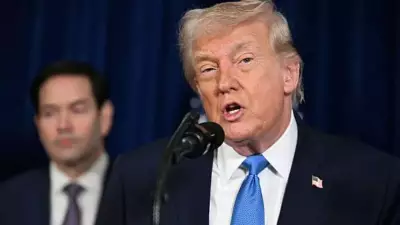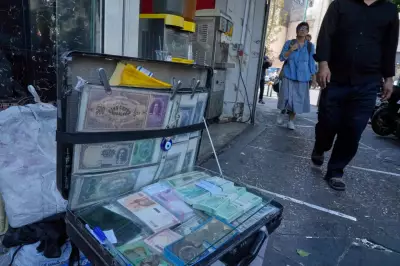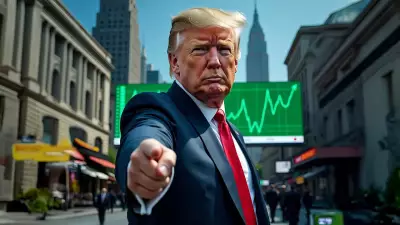
COP30 Climate Summit: Progress Made But Fossil Fuel Challenge Remains
After two weeks of intense negotiations in the rainforest city of Belém, Brazil, global climate talks concluded with a mixed outcome that advances climate action but leaves critical questions about fossil fuels unanswered. The COP30 summit brought together nearly 200 countries who agreed to an eight-page document calling for stronger national emissions targets and increased financial support for developing nations facing climate impacts.
The final agreement, titled Global Mutirão after the Brazilian term for collective action, managed to prevent backsliding on previous climate commitments while making incremental progress. However, the document's avoidance of explicit language about winding down fossil fuel use represents a significant gap in addressing the primary source of greenhouse gas emissions.
The Fossil Fuel Divide Deepens
A proposed roadmap for transitioning away from oil, gas and coal, supported by approximately 80 countries including Colombia, the UK, Germany and Kenya, became a focal point of contention. When Brazil's draft agreement released on Friday omitted this crucial element, many delegates expressed disappointment and anger.
COP30 President André Corrêa do Lago eventually pledged to create a just transition roadmap for fossil fuels that will continue development over the next year. While this commitment received robust applause during the final session, it falls short of the formal incorporation into COP processes that many climate-vulnerable nations had demanded.
The divide over fossil fuels remains profound, with some nations insisting on concrete action plans while others, including China, Russia and Saudi Arabia, treating any new phaseout obligations as unacceptable. This persistent disagreement comes despite the 2023 Dubai agreement where nearly 200 countries committed to phasing out fossil fuels.
Adaptation Finance Takes Center Stage
In a significant shift, adaptation measures gained unprecedented prominence at COP30, recognizing that climate impacts are already occurring and require immediate response. The summit adopted a call to triple adaptation finance by 2035, though this timeline extends five years beyond what developing nations had advocated.
Kalani Kaneko, foreign minister of the Marshall Islands, emphasized the urgency during summit discussions, stating that "our adaptation needs are overwhelming" in the face of rising sea levels and intensifying storms. Climate finance specialists at the World Resources Institute noted that tripling adaptation goals is achievable but requires comprehensive system improvements and increased contributions from all financial sources.
Trade Tensions and Critical Minerals Emerge
International trade disputes created additional tension during negotiations, with China and other nations expressing strong opposition to the European Union's carbon border levy. The final agreement includes language criticizing unilateral trade measures, reaffirming that climate actions should not constitute arbitrary trade restrictions.
For the first time in COP history, critical minerals like lithium and cobalt featured in draft negotiating texts, highlighting environmental and social concerns associated with their extraction. Although this language didn't survive into the final agreement, it underscored growing awareness that the clean energy transition must address potential negative impacts from mineral dependency.
Political Freedom and Civil Society Participation
The democratic setting in Brazil allowed for significant civil society engagement, with tens of thousands of protesters marching through Belém streets on November 15 demanding stronger climate action. Indigenous activists blocked entrances to the summit's Blue Zone, insisting on dialogue with Brazilian officials.
This vibrant civil society participation contrasted sharply with recent COPs held in countries with restricted political expression. However, with Turkey scheduled to host COP31, concerns are mounting about potential limitations on protest and free expression given the country's declining freedom ratings documented by Freedom House.
Forest Conservation Efforts Fall Short
Brazil entered COP30 with high ambitions for its Tropical Forests Forever Facility, a global rainforest conservation fund. Despite hopes for tens of billions in pledges, the initiative secured just over $6 billion in commitments from Norway, Germany, Indonesia and other nations.
Norway's contribution came with conditions requiring additional investment from other sources, indicating that significant work remains. The failure to include a deforestation roadmap in the final text disappointed many participants, particularly given the summit's Amazon location.
Juan Carlos Monterrey Gómez, Panama's special representative for climate change, captured the frustration, asking "If we cannot agree on ending deforestation here in the Amazon, the question is, 'then where?'"
US Absence Creates Leadership Vacuum
The first COP without American participation since President Donald Trump's return to the White House created both challenges and opportunities. Developed country negotiators, particularly from the EU, noted the absence of US diplomatic influence during critical discussions with China and Saudi Arabia.
China maintained a low profile throughout the talks, submitting what many considered an underwhelming climate pledge ahead of the summit. European representatives found themselves defending against accusations of inadequate financial support and unfair trade measures.
Despite the leadership vacuum, some participants expressed relief that the US didn't actively disrupt negotiations, as it had in recent International Maritime Organization talks about shipping emissions.
The COP30 outcome demonstrates both the resilience and limitations of international climate diplomacy, advancing incremental progress while highlighting the urgent need for more ambitious action on fossil fuels and climate finance in the lead-up to COP31 in Turkey.





